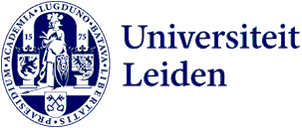
'We aim to continue innovating technologically, but in a relevant manner'
Within the field of medical science, there is significant interest in tissue and organ repair using biomaterials, notably in orthopedics and liver- and kidney transplantation. Amir Zadpoor is Professor of Orthopedics at LUMC and based at Delft University of Technology, where he is developing biomaterials, and engaging in 3D, 4D, and bioprinting. 'Collaboration and regular contact with clinicians serve as a sanity check for all our ideas.'

Amir Zadpoor holds the position of Professor of Biomaterials & Tissue Biomechanics at the TU Delft, in addition to being a Professor of Orthopedics at LUMC and one of the Scientific Leaders of the Medical Delta Regenerative Medicine 4D program. Recently, he was also appointed as a Medical Delta Professor.
Could you briefly describe your expertise?
'In our group, we tackle issues related to tissue and organ damage. We do this with implants made of synthetic biomaterials or by regenerating damaged tissues and organs. For implants, we utilize 3D and 4D printing, while bioprinting is employed for regenerating living tissue or an organ. The goal is to replace damaged organs and tissues, although we're not there yet; it's our ambition. We also research how to regenerate cells for organ transplants. For instance, if you have a donor organ of subpar quality, currently, there's little that can be done. However, in the future, we might be able to improve such organs with healthy cells, making them viable for transplantation.'
Medical Delta Professor Amir Zadpoor
Due to the selected cookie settings, we cannot show this video here.
Watch the video on the original website orThe full article can be read on the Medical Delta website.
